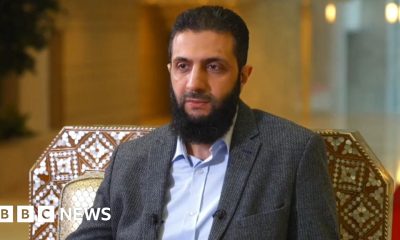Opinion
BBC, Betta Edu, and ministry of corruption – Farooq Kperogi

BBC, Betta Edu, and ministry of corruption – Farooq Kperogi
The Economic and Financial Crimes Commission (EFCC) aroused the rage of Nigerians this week when it revealed in its periodic newsletter called “EFCC Alert” (which it shared with news organizations on Monday) that it had recovered up to 30 billion naira of the money allegedly stolen by suspended Humanitarian and Poverty Alleviation minister Betta Edu.
The rage wasn’t directed at the EFCC, of course. It was directed at Betta Edu for the deficiency of morality it must take for her to steal that much money in just six months of being a minister. The rage also comes from people’s extrapolation of how much unconscionable theft of our public wealth must be going on in this administration undetected.
What sort of moral climate conduces to such stratospheric pillaging of the public till without a tinge of compunction or fear of consequences?
Just when Nigerians were roiling in the storm of EFCC’s revelations, Edu’s lawyers denied them and threatened to sue the BBC for publishing them, even though scores of news outlets also published the same story.
Her lawyers allege that the story about the recovery of N30 billion from her and the investigation of 50 banks connected to her, which we read in several legacy and digital-native news outlets, was repurposed from the BBC.
Well, that’s not accurate. As I indicated earlier, EFCC’s bulletin, called the “EFCC Alert,” is the source of the story, and it was shared with multiple news organizations, including the BBC.
If the information about the extortionate amount of money allegedly recovered from Edu is false, the blame for this should go to the EFCC, not the BBC—or, for that matter, any news site.
In order to write this column, I searched for the EFCC Alert to see what exactly it contains. I would have reached the same conclusions about Betta Edu as the BBC and other news organizations did if I were still in the news business.
READ ALSO:
- Naira continues gain, sold N1,150/$ at parallel market
- Why I love Bobrisky – Tolani Baj
- Emefiele allowed to go home after meeting bail conditions
Here’s the original, verbatim wording from the “EFCC Alert” that informed the BBC story:
“Update on Betta Edu investigation. We have laws and regulations guiding our investigations. Nigerians will also know that they are already on suspension, and this is based on the investigations we have done, and President Bola Tinubu has proved to Nigerians that he is ready to fight corruption.
“Moreover, concerning this particular case, we have recovered over N30 billion, which is already in the coffers of the Federal Government.
“It takes time to conclude investigations; we started this matter less than six weeks ago. Some cases take years to investigate. There are so many angles to it, and we need to follow through with some of the discoveries that we have seen. Nigerians should give us time on this matter; we have professionals on this case, and they need to do things right. There are so many leads here and there.
“As it is now, we are investigating over 50 bank accounts that we have traced money into. That is no child’s play. That’s a big deal. Then you ask about my staff strength.
“And again, we have thousands of other cases that we are working on. Nigerians have seen the impact of what we have done so far, by way of some people being placed on suspension and by way of the recoveries that we have made. You have seen that the programme itself has been suspended. We are exploring so many discoveries that we have stumbled upon in our investigation.
“If it is about seeing people in jail, well, let them wait. Everything has a process to follow. So Nigerians should wait and give us the benefit of the doubt.”
It’s entirely possible that the EFCC meant that in the past six weeks, it has recovered 30 billion naira from multiple corruption cases of which Betta Edu’s is one. There are many clues to that in the “alert.” Perhaps the EFCC chairman has challenges with articulate, elegant, and clear communication in the English language.
However, in the absence of any countervailing facts, it’s reasonable to assume that the EFCC Alert meant that 30 billion naira was recovered from Betta Edu and that more than 50 bank accounts belonging to her are being investigated.
After all, the title of the bulletin is “Update on Betta Edu.” It also talks of “suspension” (and Edu is the only public official we know of that is on suspension on account of corruption), although it uses the pronoun “they” to refer to the subject of suspension, implying that it could be more than one person.
Nonetheless, in referencing the recovery of 30 billion naira, the EFCC Alert talks about “this particular case”; it doesn’t say “these particular cases.” So, it’s wholly within the bounds of reason to conclude that “this particular case” refers to the title of the news bulletin: “Update on Betta Edu investigation.”
READ ALSO:
- Omokri reacts as Igbos mock his ‘made-in-Aba’ shoes
- Europa: Liverpool suffer 0-3 humiliating home defeat by Atalanta
- BREAKING: Rivers Channels TV reporter kidnapped in Port Harcourt
I hope the EFCC will clarify this issue for us—and, of course, be more careful in its public communication in future.
But it doesn’t really matter if Betta stole 30 billion naira in six months and salted away money in 50 bank accounts. The truth is that the ministry she supervised is a cesspool of some of the most fetid and audacious corruption that Nigeria has ever seen since the restoration of civilian rule in 1999.
Right from its inception, it was conceived as the hotbed of graft, as the featherbed of in-your-face venality. Its origins are traceable to the Muhammadu Buhar regime’s National Social Investment Program (NSIP), which was conceived to putatively contain poverty and deprivation in Nigeria.
NSIP had within it such programs as the N-Power Program, the National Home-Grown School Feeding Program (NHGSFP), the Conditional Cash Transfer (CCT) program, and the Government Enterprise and Empowerment Program (GEEP), which is made up of the MarketMoni, FarmerMoni, and TraderMoni schemes.
Former Vice President Yemi Osinbajo headed NSIP. But the Buhari cabal later realized that NSIP was a prolific cash cow that lined several pockets and missed its supposed targets. I was one of the earliest people approached to expose what the cabal was convinced was humongous corruption in the NSIP that ran into tens of billions of naira—complete with what seems like fool-proof documentary evidence.
As I said at the time, I refused to be used to amplify the internal discord of the common oppressors of the Nigerian people. When Osinbajo was using TraderMoni to induce poor people to vote for Buhari, the cabal had no problem. They only discovered his “corruption” after the fact.
So, they reached out to other fringe sources and figures to give publicity to the corruption in NSIP, which caused Osinbajo to threaten to sue a whole bunch of people. They achieved their aim of calling attention to the rot in NSIP, which justified taking it away from the vice president’s office and constituting it as a separate ministry.
Thus, the Ministry of Humanitarian Affairs, Disaster Management and Social Development was born. The Bola Ahmed Tinubu administration renamed it as the Ministry of Humanitarian Affairs and Poverty Alleviation.
Because it was conceived in corruption, born in more corruption, and nourished in even more corruption, it can’t be anything but corrupt. It has become the poster child for bizarre, eye-watering, consequence-free corruption.
Recall that on April 10, 2020, Maryam Uwais, then Special Adviser to the President on Social Investment, (allegedly) told Channels TV’s Sunrise Daily program that she couldn’t account for the billions that she and the Minister of Humanitarian Affairs putatively gave to weak, poor, and vulnerable Nigerians to ease the hurt of the coronavirus pandemic because, “Those who benefit from the conditional cash transfer of the Federal Government as palliative to cushion the effects of the lockdown caused by the deadly Coronavirus don’t want to be addressed as poor people. That is why we can’t publish their names.”
For her part, Sadiya Umar Farouq, Uwais’ superior, turned heads when she (allegedly) said she expended billions to feed schoolkids who weren’t in school because of COVI-19. Betta Edu was merely walking a well-trodden path in the ministry.
If Tinubu wants to be taken seriously, he should not only outright terminate Edu’s appointment as a minister, but he should also scrap the entire ministry she heads. That ministry has no reason to exist.
BBC, Betta Edu, and ministry of corruption – Farooq Kperogi
Farooq Kperogi is a renowned Nigerian newspaper columnist and United States – based Professor of Media Studies.
Opinion
2025 sends off 2024 and its baggage of rubbish

2025 sends off 2024 and its baggage of rubbish
Tunde Odesola
(Published in The PUNCH, on Friday, January 3, 2025)
The good, the bad and the ugly incidents that fetishised the ‘Ember’ months, notwithstanding, the year 2024 rolled off Earth’s cliff two days ago, plunging into the domain of history.
For most Nigerians, 2024 was a plummet down the valley of penury, like the restless Jabulani ball, scissors-kicked over the bar by a striker in a team of wanton boys playing soccer on a hill. F-r-e-e-z-e: Players and spectators watch, mouths agape, as the ball bounces – gba, gba, gba, gba, gbos – into the abyss of no return.
Leaving T-Pain’s tonnes of pain in the memory of multidimensionally poor Nigerians, 2024 melts away like a candle in the wind as 2025 unveils its almanac of hope and promise at January’s doorstep; hope and promise – fodders for the poor.
But, I often hear Generation Z say, ‘Nigeria is a cruise’; whatever that means is not a compliment. Dis Gen Z no send. They also describe Nigeria as an ‘active crime scene’. I strongly do not disagree.
“Proverbs, prophets, profits, politics and pains” is the other headline I considered for this piece. The white man is wise; He pronounces prophet and profit the same way – /ˈprɒf.ɪt/ – probably because He knows one is a mirror, the other is a reflection. Playing politics, He brought us the Books of the Prophets to enslave and make profits from our pains. The white man; He deserves a capital H because He’s very wise. His H, however, could also mean Heaven or Hell. What does His H mean?
In their wisdom, the Igbo say proverb is the palm oil with which words are eaten. I concur. According to the Yoruba, a proverb is the horse deployed in search of speech when words go AWOL. I daresay that for Africans, in general, a proverb is the thread the needle threads to hold together the verbal embroidery in everyday conversation.
Charity shouldn’t end at home, though it begins there. To this intent and purpose, I intend, in this article, to use proverbs to contextualise Nigeria’s political and religious leadership on the canvas of hypocrisy, starting with Igbo proverbs.
But wait o, do you know why footballers bore holes in their socks? It is because they want their legs to breathe. Do you remember the squished black American, George Floyd, and his neck, grunting under the knee of breakneck brutality in Minneapolis, Minnesota, in 2020?
READ ALSO:
- Jealous husband stabs Bishop to death over allege affair with wife
- Police arrest couple over alleged rape, assault of minor
- BREAKING: Many injured as 2 Edo council chairmen impeached
Well, soccer players cut holes in their socks to reduce tightness and pressure on the calves, thereby preventing cramps and spasms. Holes in socks also allow better air flow and blood circulation in the feet.
Ex-House of Representatives member from Edo State, Patrick Obahiagbon, is both a jokesmith and a wordsmith. From him, I learnt Isi-ewu-lysing and peppersouping.
In the years of the military, the phrase ‘Fellow Nigerians’ sent khaki-chill down the spine of the citizenry when potbellied isi-ewu-lysing and peppersouping coup plotters seized the air to announce the death of a reigning government and the birth of a new one.
But a serving Lagos PPRO, Superintendent Alozie Ogugbuaja, dared the military by telling Nigerians that the country’s soldiers were more adept at isi-ewu-lysing and peppersouping than cocking a gun. I still don’t know how Ogugbuaja never stopped a bullet!
“Fellow Nigerians” and “With immediate effect” are military phrases invented by the late General Murtala Mohammed, who seized power from General Yakubu Gowon, at 36, with Gowon himself being 31 when he shot to power. Those were the years when youths were truly the leaders of tomorrow. But ancestors are in power today.
So, it’s with the utmost sense of political history that I hereby use the phrase ‘Fellow Nigerians’.
Fellow Nigerians, to survive religious and political asphyxiation in 2025, there’s the need to use our heads more than our hearts and move away in the opposite direction from profiteering politicians and crooked prophets, whose yearly predictions and projections are emptier than emptiness. To buttress my charge, I bring you the Igbo proverb that says, “Ukwu na ga wara; anya na ga wara na hu ya,” meaning: When the legs walk in the shadows, eyes in the shadows will see it.
The Igbo are not done, they have another proverb that speaks to the hypocrisy exemplified by Nigeria’s military bombing of innocent citizens in Sokoto last Christmas. Here’s the proverb: “O bu mmuo ndi na-efe na-egbu ha”. Meaning: It’s the deity that people worship that kills them.
In Sokoto, Nigerian soldiers made another tactless error by raining bombs on the innocent, killing no fewer than 10 people. But instead of military authorities owning up and apologising for the human error, the Chief of Air Staff, Hassan Abubakar, in a Christmas broadcast, thanked members of the Air Force.
READ ALSO:
- KWAM 1 gifts N20m to longest-serving band member at New Year concert
- JUST IN: NNPCL invites Obasanjo for tour of Port Harcourt Refinery
- El-Rufai’s ex-CoS Bashir arrested for alleged financial misconduct
Unlike stronger, more equipped and better-educated armies worldwide, the Nigerian Army never says sorry for intentional and unintentional wrongdoing. N-E-V-E-R! From the throwing of Mrs Funmilayo Ransome-Kuti out of an upstairs window to the Odi massacre and other senseless killings nationwide, the Nigerian military never says sorry whereas the strongest army in the world, the US Army, apologises whenever it errs against the citizenry.
Since independence, the Nigerian Army has proudly worn its ‘Big-for-Nothing’ badge, always bullying the citizenry rather than offering protection. I aver without equivocation that the Nigerian Army is the most arrogant of all the agencies of government. And the most lawless, too. It’s the stupid god that kills its people.
It took the Vice President, Kashim Shettima, and Sokoto State Governor, Ahmed Aliyu, to apologise and sympathise with the families of the Sokoto bereaved. What would it cost the Army to apologise for an unintended error?
Yoruba proverbs are as plentiful as the sands of the beach. One of them is “Oju abere ni okun n to”. It means the thread follows the path created by the needle.
But the thread of Nigeria’s priesthood has deviated from the path created by the needle. The needle here is a metaphor for the Holy Bible and the Holy Quran, with the Ifa priesthood being not as ridiculous as the Christian and Islamic priesthoods.
January is the time of the year when Christian clerics especially, and some of their Muslim counterparts, who are playing catch-up, come up with spurious predictions for the New Year.
READ ALSO:
- Ilorin: Retired works controller murdered on New Year’s Day
- ‘Deepen Shariah knowledge to curb misinformation’
- NNPC rejected Dangote $750m offer to manage Nigeria’s refineries, days Obasanjo
They claim they hear from God but 101% of their puerile predictions don’t come to pass. I wonder how they face their congregation days after their predictions come to nought. Some people are shameless, thick-skinned toads.
I also wonder how their congregations face them after their litanies of failed predictions. Is it a case of “iso inu eku, a mu mo’ra ni” or “Esin alatosin ko si lowo okobo”? In the ‘iso inu eku’ proverb, the Yoruba deduce that when the masquerader farts inside its masquerade, he cannot complain of the smell.
Also, the Yoruba call a man suffering from gonorrhoea ‘alatosin’. They reason that a man suffering from gonorrhoea is better than another suffering from erectile dysfunction. Surely, there’s a dire dysfunction in the nation’s priesthood.
None of Nigeria’s lying seers saw the spate of drownings nationwide. Their gods couldn’t tell them specifically about impending flooding, building collapse and fire outbreaks. I won’t mention names because they know themselves and the mugus know them.
If their thread was following the path charted by the needle, they would have been as exact as the Dreamer called Joseph or Elijah, the rainmaker or Jacob who saw heaven. But the needle and the thread of priesthood in Nigeria have fallen apart.
I’ll end this piece with two Hausa proverbs, “Rua ba su yami banza,” and “Kadda ya yi chikki, ya haifu wauya.” The first means ‘water does not get bitter without a cause’ while the second means, ‘Don’t do something that you would be sorry for afterwards’.
It’s a new year; let’s be patriotically wise. Only a stubborn dog disregards the Hunter’s Whistle. A word is enough for the wise. Welcome, 2025.
Email: [email protected]
Facebook: @Tunde Odesola
X: @Tunde_Odesola
2025 sends off 2024 and its baggage of rubbish
Opinion
Tinubu’s Buharization of NNPC By Farooq Kperogi
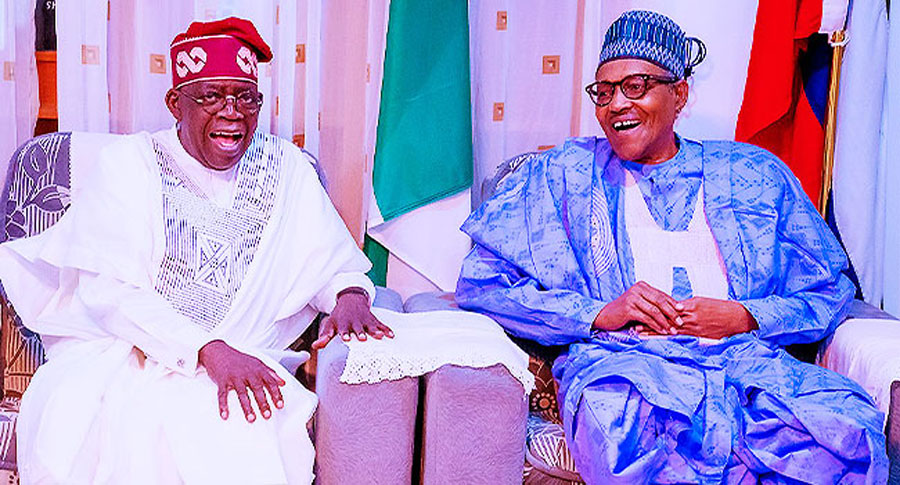
Tinubu’s Buharization of NNPC by Farooq Kperogi
After the sustained, unwarranted personal attacks I endured for eight years from northerners for unswervingly calling out what I called the “embarrassingly undisguised Arewacentricity of Buhari’s appointments” in a February 2, 2019, column titled “Even Ahmadu Bello Would Be Ashamed of Buhari’s Arewacentricity,” I promised that I would look the other way if a southern president returned the favor after Buhari’s tenure.
But promises made in the heat of disillusionment often crumble under the weight of principle.
Ironically, this column was inspired by a well-regarded Yoruba supporter of President Bola Ahmed Tinubu who is worried, in fact embarrassed, by the optics of what he says is Tinubu’s relentless Yorubacentric take-over of the Nigerian National Petroleum Company (NNPC).
His concern wasn’t just partisan discomfort; it was a profound unease about how this nepotistic approach undermines national cohesion.
I frankly hadn’t been paying attention to the internal dynamics at the NNPC, but the acquaintance pointed out that Yoruba people now occupy major positions at the NNPC and that a certain (person) is “being proposed as GMD after Mele Kyari’s term expires” early next year.
I haven’t independently confirmed the accuracy of this claim but given the closeness of the source of information to people in the circles of power, it’s probably best to not dismiss this with the wave of the hand.
His concern is that Tinubu, from the Southwest, is already the minister of petroleum. Senator Heineken Lokpobiri, the Minister of State for Petroleum and Chairman of the NNPC, is from the South-South. Chief Pius Akinyelure from the Southwest is NNPC’s Non-Executive Board Chairman.
READ ALSO:
- Lagos Imam to Tinubu: You haven’t disappointed us
- Ronaldo, Vinicius, Yamal win big at 2024 Globe Soccer Awards [Full list of winners]
- Vinicius should have won Ballon d’Or, not Rodri – Ronaldo
The head of the NNPC Upstream Investment Management Services (NUIMS), Mr. Bala Wunti, my acquaintance pointed out, has been replaced by one Seyi Omotowa. Gbenga Komolafe is the chief executive officer of the Nigerian Upstream Petroleum Regulatory Commission (NUPRC), making him the highest-ranking upstream regulator.
“If a Yoruba man were to be the GMD, another Yoruba man is the Chairman, and yet another Yoruba man is the regulator, that’s extreme lopsidedness,” and other parts of Nigeria would be justified to feel uncomfortable, my acquaintance said.
As with issues of this nature, the reality may be more complex that the surface-level impressions that I have been presented with. Of the 12-member non-executive Board of Directors, I counted at least four names that I recognize as northern, and that includes Kyari, the outgoing GMD.
The 7-member Senior Management Team on NNPC’s website has three northerners (if Kyari is included). That seems fair. Plus, Buhari actually appointed many of the Yoruba people in high places at the NNPC. By these metrics, one might argue that there’s a semblance of balance.
However, Tinubu’s broader public image tells a different story. His administration is rapidly cementing a reputation for Yorubacentric provincialism. Like the late Umaru Musa Yar’Adua, who governed Nigeria as if he were still a Katsina governor, Tinubu appears to be governing Nigeria as though he were still the governor of Lagos.
Just like Yar’adua was elected a Nigerian president but operated like a Katsina governor in Abuja, Tinubu is also, so far, a Nigerian president only in name. His mindset is still that of the governor of Lagos.
With a few notable (and in some cases unavoidable) exceptions, Tinubu’s government is largely the re-enactment of his time as the governor of Lagos. It is, for all practical purposes, an unabashed Lagos-centric Yorubacracy.
To be fair, though, with the possible exception of Olusegun Obasanjo’s administration, all civilian regimes since 1999 have been insular ethnocracies.
My source reminded me of a viral social media post I wrote on January 14, 2019, titled “New IGP: Why Progressive Northerners Should be Embarrassed” where I gave four reasons for being insistently censorious of Buhari’s Arewacentric appointments in response to southerners who asked why I was bothered since I was a northern Muslim who was “favored” by such appointments—“favored,” that is, on the emotional and symbolic plane.
READ ALSO:
- Nigeria Customs Service begins 2025 recruitment [How to apply]
- Dangote, Tinubu, Lookman, Badenoch named among 100 most influential Africans in 2024
- Heavy security in Ilesa as ex-Osun deputy gov emerges new Owa-Obokun
I pointed out that I criticized similar such parochial appointments by previous presidents from the South and that it would be hypocritical to look the other way because I was now “favored” by such appointments.
I said people from my region and religion won’t always be in power, and I wanted to be able to stand on a firm moral pedestal when I criticize future presidents who replicate Buhari’s (and previous presidents’) provincialism.
Most importantly, I said, I was personally embarrassed by Buhari’s insularity and that every progressive northerner should be. I described it as the sort of embarrassment you feel when your best friend who thinks highly of your mother visits you in your home and your mother, during a family dinner, gives you a considerably bigger food portion size and choicer pieces of meat than your friend.
“You feel like screaming: ‘Mom, I know you love me, but you’re embarrassing me by showing overt preferential treatment to me in the presence of my friend’,” I wrote.
The Yoruba acquaintance of mine who alerted me to the creeping Yoruba-centric take-over of the NNPC said he was doing so out of a feeling of the same sense of embarrassment that inspired my rage against Buhari’s appointments that favored the North unfairly, especially in the areas of security.
Tinubu is doing in the economy sector what Buhari did in the security sector. The minister of finance, the governor of the central bank, and every other consequential agency in finance is headed by a Yoruba man. I am not sure Nigeria has ever seen this level of extreme, state-sanctioned ethnocentric domination of a critical segment of national life.
Appointing another Yoruba individual as the head of the NNPC would complete what many already perceive as the ethnic capture of Nigeria’s economic nerve center. It would not only cement Tinubu’s image as an insensitive ethnocrat but also exacerbate public discontent and foster deeper divisions in an already polarized nation.
If Tinubu is unaware of this burgeoning perception, he needs to awaken to its reality. Leadership is not just about policies and actions; it’s also about managing optics and inspiring confidence in a nation’s collective identity.
In a September 5, 2015, column titled “Buhari is Losing the Symbolic War,” where I railed against the exclusion of Igbo people in Buhari’s first appointments, I wrote:
“Symbolism isn’t the same thing as substance. Appointing people to governmental positions does nothing to improve anybody’s lot—except, perhaps, the people so appointed and their immediate families.
“Jonathan’s disastrous 5-year presidency couldn’t even bring basic infrastructure like boreholes to his hometown of Otueke, yet his people derive vicarious satisfaction from the fact of his being Nigeria’s former president.
“Human beings are animated by a multiplicity of impulses, including rational and emotional impulses, both of which are legitimate. When we turn on our rational impulses, we may ask: What would appointing an Igbo man as SGF, for instance, do to Igbo people? The answer is ‘nothing.’
“But we are more than rational beings: we are also emotional beings. That’s why people are invested in symbolism. Appointing someone from the southeast or the deep south is merely a symbolic gesture, but it inspires a sense of inclusion in the minds of many people from that region; it serves as a symbolic conduit through which people vicariously connect with the government.”
This cycle of ethnic favoritism must end if Nigeria is to realize its full potential as a nation. To grow and thrive, we need leaders who can transcend the narrow confines of ethnocracy.
We need leadership that embraces diversity and inclusion, not as buzzwords but as guiding principles for governance. Only then can we begin to heal the fractures that divide us and build a nation that serves all its citizens, regardless of ethnicity or region.
Farooq Kperogi is a renowned Nigerian columnist and United States-based Professor of Media Studies.
Tinubu’s Buharization of NNPC by Farooq Kperogi
Opinion
Ademola Lookman showed Davido and Kemi Badenoch that wisdom is not by age – Omokri
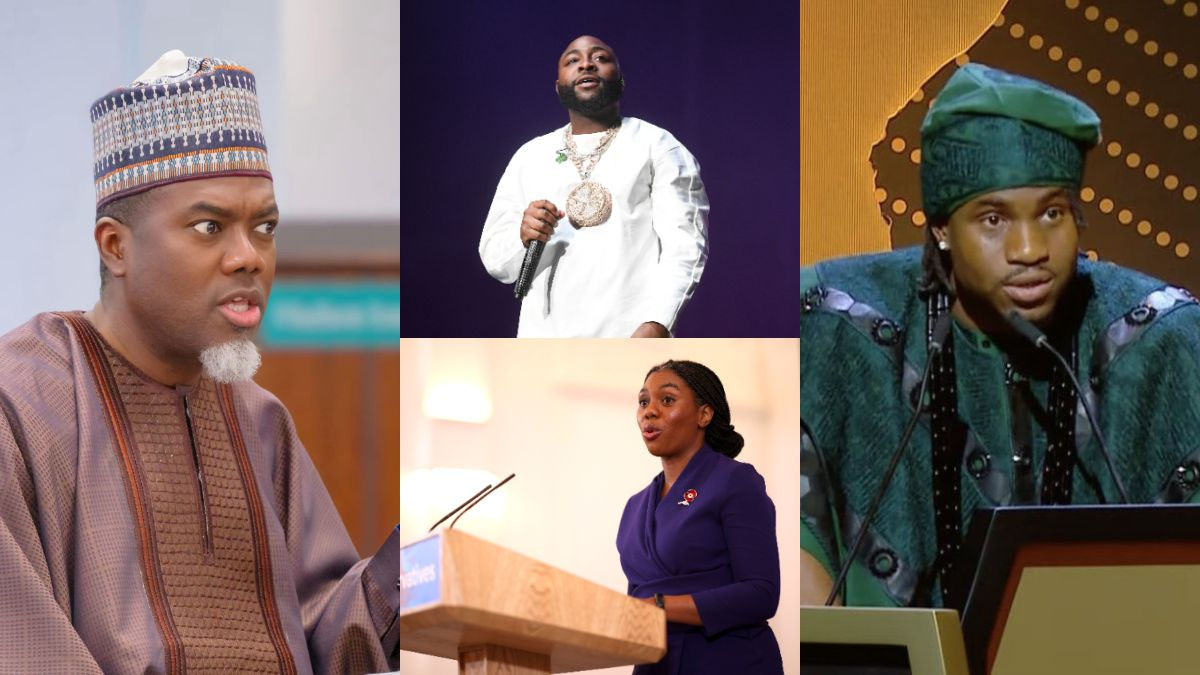
Ademola Lookman showed Davido and Kemi Badenoch that wisdom is not by age – Omokri
Recently, the singer David Adeleke was given a global stage to do whatever he wanted and deliver any message.
Sadly, Mr. Adeleke used the opportunity to speak in an American accent. Not only that, he used that American accent to talk down on Nigeria and tell the world not to invest in Nigeria because, as he put it, Nigeria’s “economy is in shambles”.
Coincidentally, a month after his faux pas, Kemi Badenoch, probably inspired by Davido, used her British accent to talk down Nigeria, calling us “a very poor country” where the police rob citizens.
But the interesting thing about her own case is that the next day, the BBC featured a panel of Conservative Party big shots, and one of them, Albie Amankona, a party chieftain from Chiswick, who is also a celebrity broadcaster, said, and this is a direct quote:
“If you are a Brexiteer, and you are saying we need to be expanding our global trade beyond the European Union, we want to be looking at emerging markets for growth, don’t slag off one of the fastest growing economies in Africa.”
Is it not strange that it took the BBC and a British politician to promote Nigeria as one of the fastest-growing economies in Africa?
And just when we thought it was all bad news, God gave us a breath of fresh air in the youthful Ademola Lookman, who used the global podium granted to him by his winning the 2024 African Footballer of the Year award to promote and project Nigeria and the Lukumi Yoruba language to the world.
READ ALSO:
- MURIC tackles Kemi Badenoch: Can you bring UK police when coming to Nigeria?
- Reps probe $754.2m, N141.6bn tractors, harvesters contract fraud
- Gov Adeleke intervenes in man sentenced to death for stealing fowl (Video)
Wisdom is not by age. If not, Ademola Lookman, who is just twenty-seven, will not have displayed greater wisdom than David Adeleke, who is thirty-two, and Kemi Badenoch, at forty-four.
Mr. Lookman proved that the age of Methuselah has nothing to do with the wisdom of Solomon.
And it is not as though other ethnicities with global icons do not also project Nigeria. They do.
Dr. Mrs. Ngozi Okonjo-Iweala spoke Igbo on the podium of the WTO in Geneva. In terms of prestige, she is FAR above Lookman.
My campaign is not for the Lukumi Yoruba alone. It is for all sub-Saharan Black Africans to learn to speak their language and not use ability to speak English or another colonial language as a measure of intelligence.
Besides Lukumi Yoruba and Hausa, every other Nigerian language, including Fulfulde, is gradually dying out.
General Buhari is half Fulani and half Kanuri. Yet, he cannot speak either Fuifulde or Kanuri. But he speaks Hausa and English.
Fact-check me: In 2012, UNESCO declared Igbo an endangered language.
However, the Lukumi Yoruba are to be commended for their affirmative actions to advance their language and culture.
Let me give you an example. All six Governors of the Southwest bear full Lukumi names: Jide Sanwa-Olu, Seyi Makinde, Dapo Abiodun, Ademola Adeleke, Abiodun Oyebanji, and Orighomisan Aiyedatiwa.
No other zone in Nigeria has all its governors bearing ethnic Nigerian names as first and second names. They either bear Arabic or European names as first names or even first and second names.
If we truly want to be the Giant of Africa, we must take affirmative steps to preserve our language and culture so we can have children like Ademola Lookman.
Teach your language to your children before you teach them English. They will learn English at school. Being multilingual is scientifically proven to boost intelligence.
Fact-check me: In the U.S., Latino kids do not speak English until they start school. They learn Spanish as a first language.
Even if you relocate to the UK, the best you can be is British. You can never be English. And if your choice of Japa is the U.S., the highest you can be is an American citizen. You will never become a White Anglo-Saxon Protestant WASP.
Your power lies in balancing ancient and modern, Western and African, English (or other colonial languages) and your native tongue.
That is the way to reverse language erosion, like the Lukumi Yoruba.
Ademola Lookman showed Davido and Kemi Badenoch that wisdom is not by age – Omokri
-
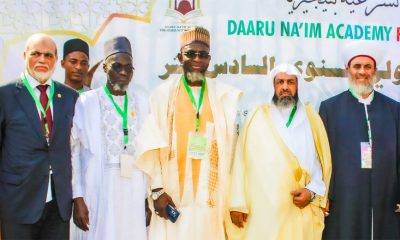
 metro2 days ago
metro2 days ago‘Deepen Shariah knowledge to curb misinformation’
-

 metro1 day ago
metro1 day agoYouths beat Osun monarch for appointing Imam
-

 metro2 days ago
metro2 days agoIlorin: Retired works controller murdered on New Year’s Day
-

 Business15 hours ago
Business15 hours agoPetrol price may crash to N500/litre, say marketers
-
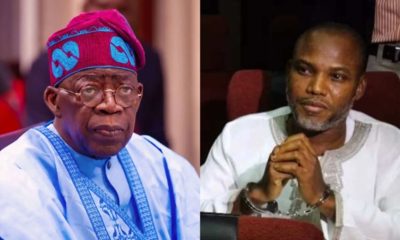
 metro2 days ago
metro2 days agoTinubu’s refusal to honour Seyi’s pact with us disappointing – Nnamdi Kanu’s family
-
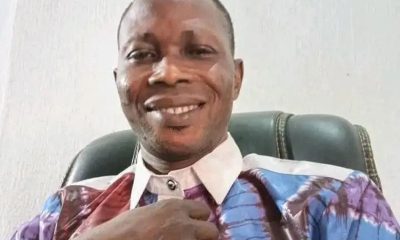
 metro2 days ago
metro2 days agoJealous husband stabs Bishop to death over allege affair with wife
-

 Business15 hours ago
Business15 hours agoMeta deletes AI accounts after backlash over posts
-
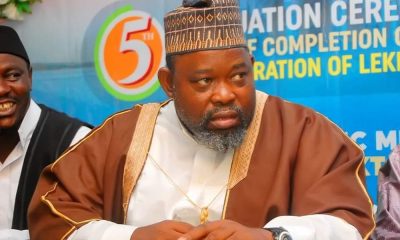
 metro2 days ago
metro2 days agoMosques should be research centres – Varsity don



